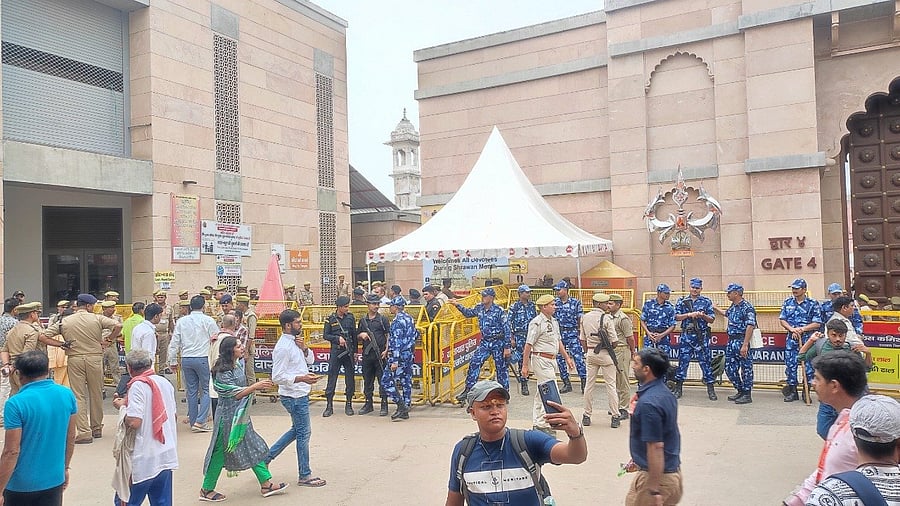
The locks of the contentious Gyanvapi Mosque in Varanasi were opened on Saturday as the Archaeological Survey of India (ASI) continued its scientific survey of the premises for the second day in the presence of the representatives of the Hindu and Muslim litigants.
According to sources, the ASI team conducted photography and videography inside the mosque and also recorded their findings. 3-D imaging technique was being used by the ASI, sources added.
One of the Hindu representatives, who was present during the survey, said that the ASI team had asked for cleaning of the 'tehkhana' (basement) which was situated in front of the idol of Nandi (the bull, considered to be the carrier of Lord Shiva). There were a lot of debris and materials inside the 'tehkhana', sources said.
The ASI team also had a ladder with them, sources said. ''Both sides (Hindu and Muslims) are cooperating in the work of the survey,'' said a district official in Varanasi.
The survey work continued for seven hours on Saturday.
The scientific survey of the mosque premises began once again in Varanasi on Friday after the Allahabad high court rejected the petition filed by the Muslim litigants seeking a stay on the Varanasi court's order for a scientific survey by the Archaeological Survey of India (ASI).
The ASI had sought four weeks' time to submit its report to the Varanasi court. The ASI will conduct the survey of the premises barring the 'wuzukhana' (the area where the Muslims wash themselves before offering prayers).
The premises had been a bone of contention between the two communities for the past several decades but there was renewed clamor to ''take back'' the Kashi Vishwanath Temple premises by the saffron outfits after the favourable decision of the apex court in the Ram Temple case.
The Hindu petitioners contended that a part of the temple had been demolished by the Mughal emperor Aurangzeb in the 17th century. The Muslim side contended that the mosque existed before the reign of Aurangzeb and also claimed that the same had also been mentioned in the land records.
